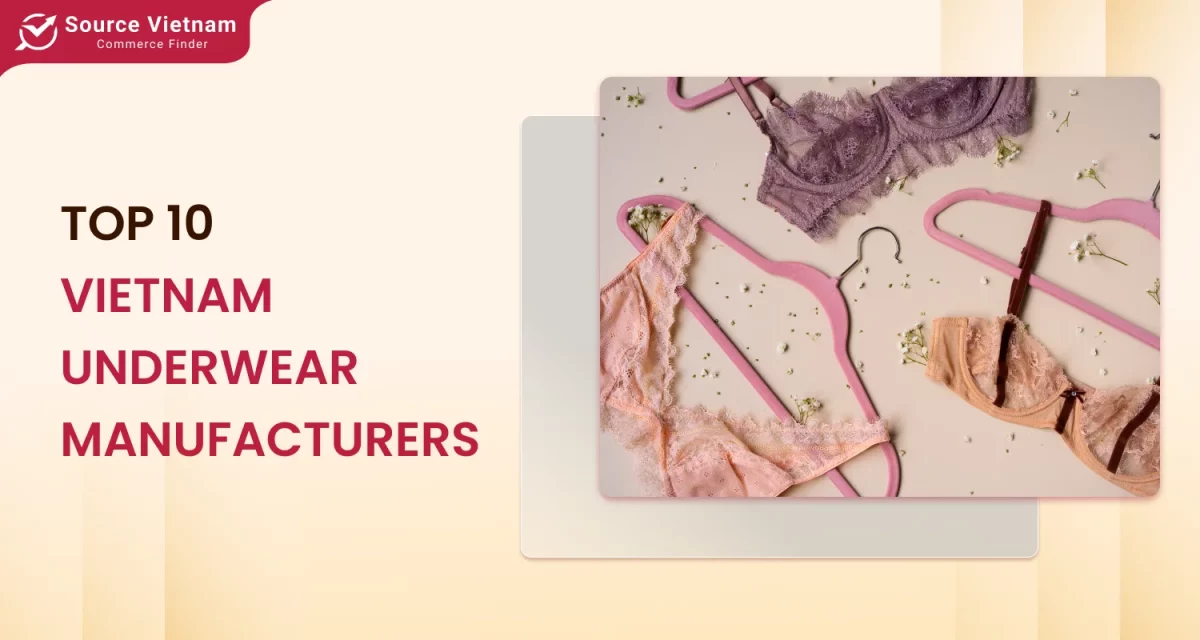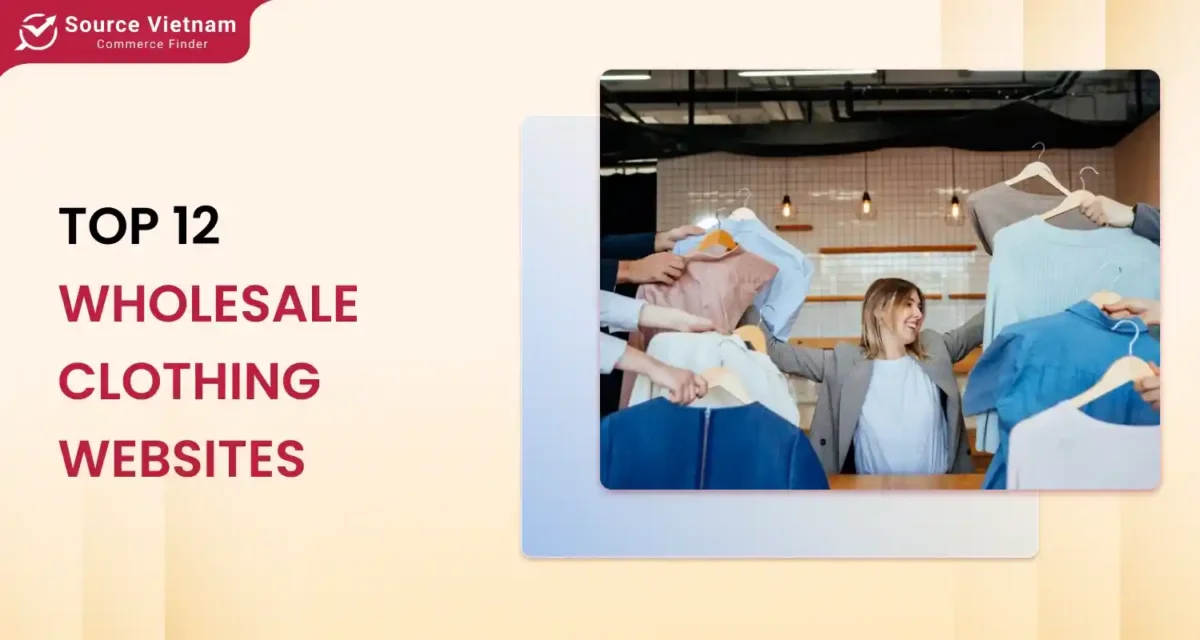In today’s competitive fabric trade, businesses in the fashion, apparel, or textile industry need to know how to buy fabric in bulk. By the way, retailers receive many benefits like reduced material prices, thereby cutting down on some of the costs and affecting the increase in profit margins.
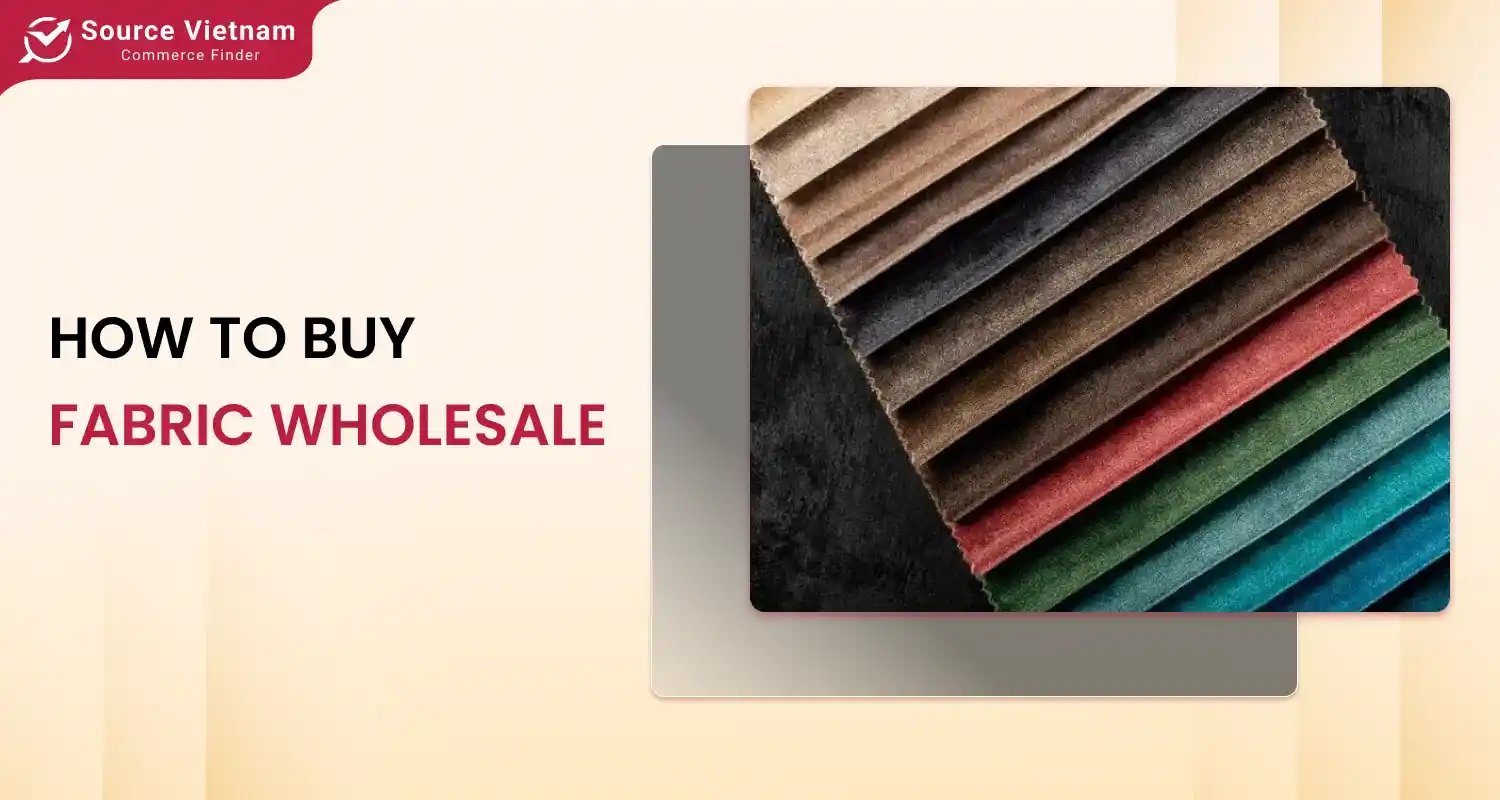
The following article details how to buy fabric wholesale, and identifies a reliable supplier to handle shipping and control in the fabric wholesale market.
Why should garment production buy wholesale fabric in bulk?
Many successful textile businesses rely on wholesale fabric online purchasing to streamline their operations. Here’s why buying wholesale fabric is a beneficial choice.
Lower costs and better profit margins
The chance for great cost reductions is one of the main benefits of purchasing wholesale fabric suppliers. They frequently discount large purchases, and wholesale pricing is usually far less than retail costs. This decrease makes businesses set up more competitive prices, which helps them draw in price-conscious clients while maintaining profit margins.
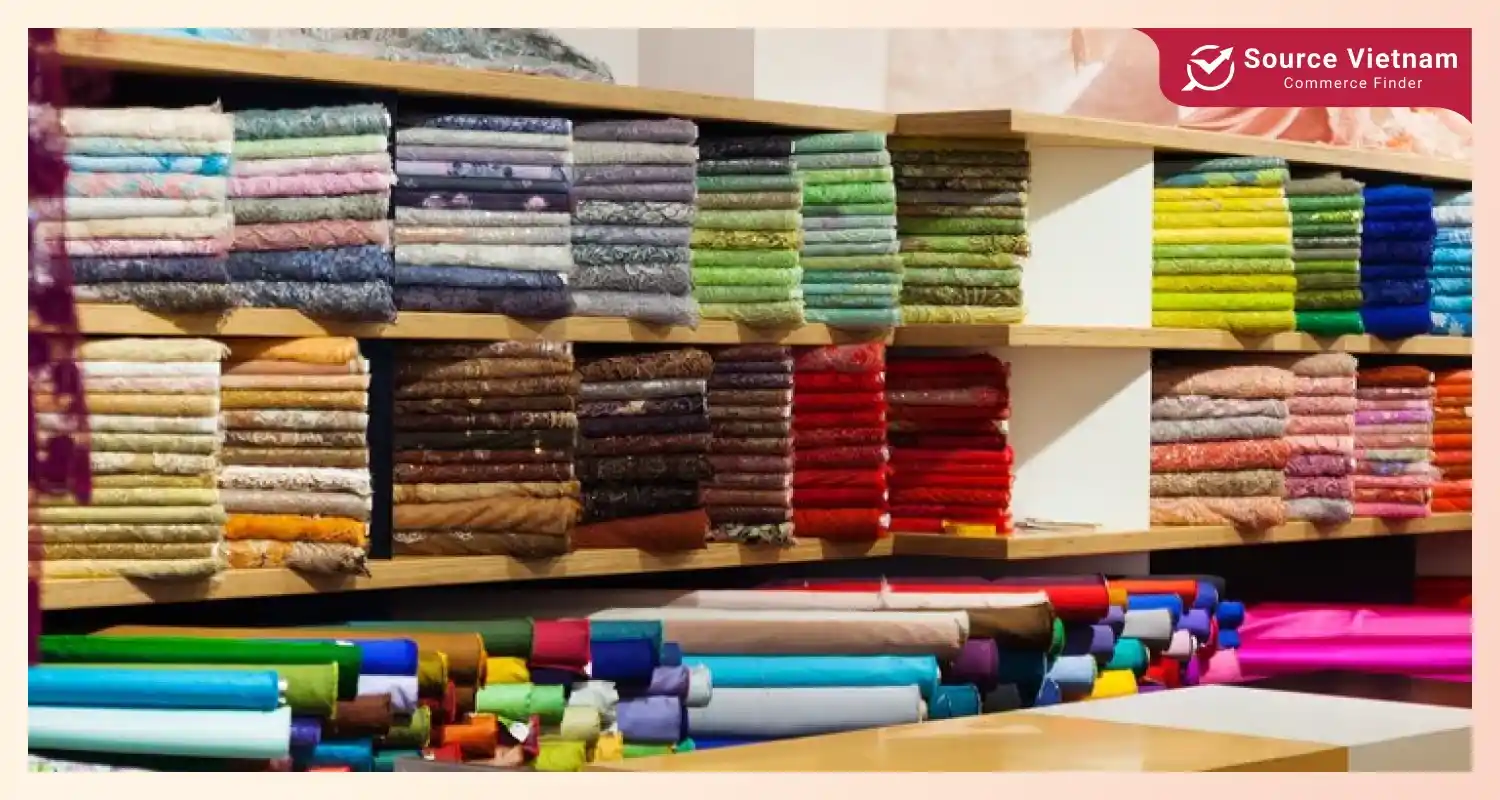
When buying fabric wholesale for businesses, the company can eliminate working with intermediaries, which helps businesses access reliable goods directly from suppliers. From there, companies can follow fabric quality control of material sourcing and optimize profit in case of buying fabric in bulk for reselling.
Greater fabric variety and customization options
Wholesale fabric distributors often provide many choices of materials compared to retail stores. Many options allow businesses to find specific fabrics for their products, whether for daily clothing or unique styles.
For instance, some suppliers can create custom fabrics, making your products stand out in a competitive market. That suits the desired look, feel, and quality that their clients expect, so make your brand competent and recognizable.
How to buy wholesale fabric effectively?
To buy the wholesale fabric market, the company needs to understand well the critical steps necessary to ensure that materials of good quality are purchased at an optimal price. Let’s learn with SourceVietnam.com the steps to buy from wholesalers are below:
Find a reliable supplier
To start cooperating with fabric wholesalers, a business must find a reliable supplier. Take the time to search for multiple sources to choose the best for the future.
Online platforms such as Fabric.com, SourceVietnam.com, and Alibaba will help businesses find reliable fabric wholesalers. With a value-oriented approach for retailers, these websites provide access to many different suppliers, making it convenient for your business to compare prices, fabric types, and minimum order quantities (MOQs). Businesses can also verify the reliability of each supplier by reading reviews from previous customers online.
Read more: How to Find the Best Wholesale Suppliers for Resellers
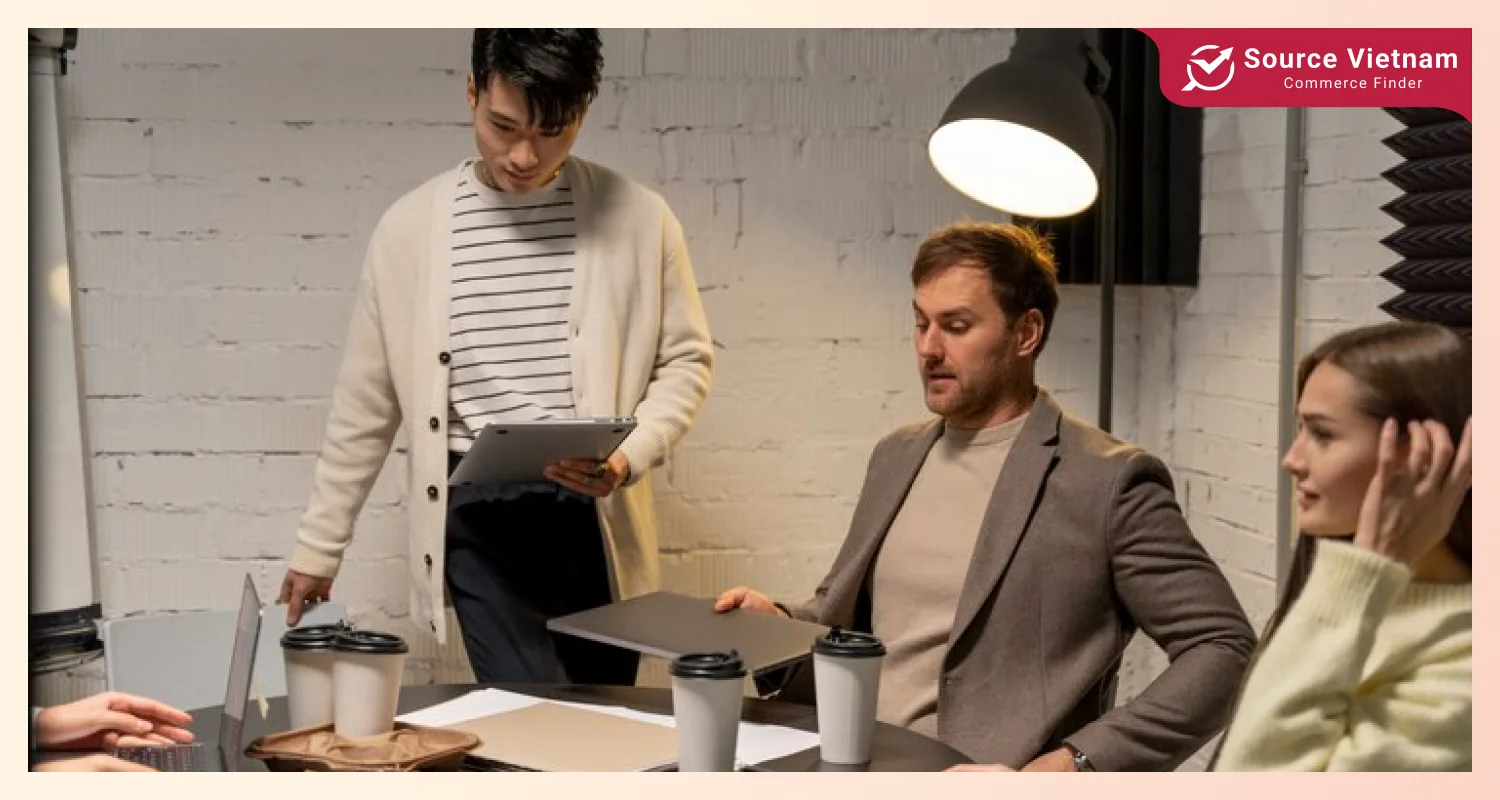
Also, textile trade fairs like Texworld USA, Intertextile Shanghai, or Premiere Vision in Paris are another good method to directly meet vendors. Attending trade exhibitions offers the opportunity to view fabric samples and have in-person conversations about product specifications.
Checking supplier credentials
This confirmation of qualifications is among the most vital next steps when a potential supplier has been found, as it will easily tell if one is working with a trustworthy business.
To meet the requirements for fabric quality, order fulfillment, and customer service, businesses should read customer reviews on the supplier’s website and third parties. Contact some of the supplier’s previous customers to learn about their experience.
Choosing the right fabric for your business
One of the most essential steps in wholesale business model strategy is understanding how to choose the suitable fabric for your business. Different fabrics will affect various product qualities like durability, comfort, and appeal. Let’s explore the characteristics of fabrics through the detailed comparison table below:
| Fabric Type | Characteristics | Primary Using | Target Audience |
| Cotton | Soft, breathable, versatile, and ideal for casual wear and bedding. | Casual wear, bedding, general textiles | Consumers seeking comfort and breathability, eco-conscious brands |
| Polyester | Durable, wrinkle-resistant, low-maintenance. | Apparel, home decor, activewear | Active individuals, households preferring easy-care textiles |
| Silk | Luxurious, smooth, and delicate | High-end clothing, scarves, accessories | Luxury buyers, consumers seeking elegant, premium fabrics |
| Linen | Lightweight, absorbent, cool. | Warm-weather clothing, home decor | Individuals in hot climates, eco-conscious brands, casual wearers |
How to request fabric samples?
Before placing a large order, businesses should conduct a quality assessment by requesting supplier fabric swatches. Examining samples will help your company understand durability, texture, and color accuracy.
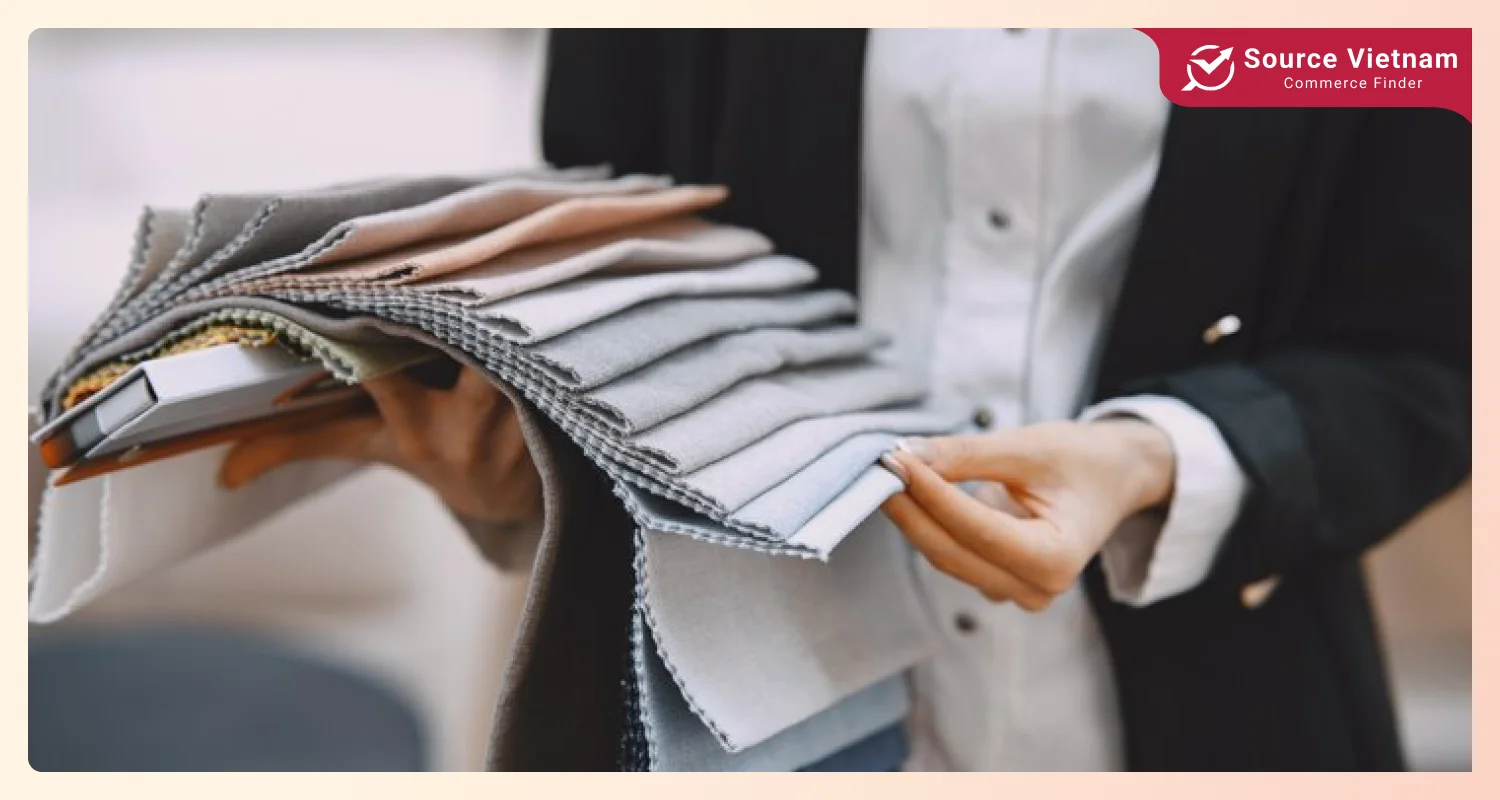
In addition, businesses can test with water, assuming a washing situation, to better assess the fabric’s durability over time. By doing this, businesses should observe signs of warping, shrinking, or discoloration.
How to set wholesale fabric prices?
Before making any purchases, they need to know the total cost of production, transportation costs, and other hidden costs such as handling service costs, customs charges or taxes ‘import duty’ costs, and the cost of delivering physical items from suppliers.
Then, do the math for the business and propose a price that fits both the target and the current market price. Don’t forget to monitor market trends and competitors’ prices to maintain competitive but profitable prices.
Negotiating with fabric suppliers
Negotiation is indispensable in purchasing activities, especially with large and periodic orders. Smart negotiation will help your business receive many benefits.

Negotiating with wholesale fabric suppliers can be daunting, but you can secure the best deals for your business with the right approach. Here are some tips to help you navigate the negotiation process:
Do your research:
- Know your market: For a solid negotiation baseline, understand current market prices for fabrics.
- Research suppliers: Learn about their reputation, reliability, and past deals to leverage in negotiations.
Build strong relationships: - Establish trust: Build rapport with suppliers through open communication and honesty.
- Prioritize long-term partnerships: Focus on building lasting relationships rather than short-term gains.
Leverage your buying power:
- Consolidate orders: Combine multiple orders into larger quantities to negotiate better prices.
- Offer flexible payment terms: Propose payment terms that benefit both parties, like early payment discounts.
Be assertive, not aggressive:
- State your needs clearly: Articulate your specific requirements and budget constraints.
- Be prepared to walk away: If a deal isn’t favorable, be willing to walk away and explore other options.
Negotiate on multiple fronts:
- Price isn’t everything: Consider negotiating on delivery times, minimum order quantities, or additional services.
- Creative solutions: Explore alternative solutions like quantity discounts or bundled deals.
Be flexible and willing to compromise:
- Find common ground: Identify areas where both parties can benefit from a compromise.
- Be open to suggestions: Listen to the supplier’s perspective and be willing to adjust your position.
Understanding minimum order quantities (MOQs)
Wholesale buying refers to the minimum unit of cloth a certain supplier has on offer for sale in one order. MOQs vary greatly and are influenced by production costs, supplier rules, and fabric type. MOQs are helpful for the best wholesale fabric suppliers for small businesses.
If you’re working with different textiles, ensure your entire purchase falls within your budget and storage capacity by considering the MOQ for each material.
Balancing MOQs with inventory needs
Balancing MOQs with your business’s inventory requirements helps you avoid overstocking or under-supplying materials. While larger MOQs can be more cost-effective, excess fabric can affect resources, requiring additional storage and potentially leading to waste.
To determine the appropriate amount of fabric to order, it is important to confirm the production deadline with the supplier and forecast the business’s sales.
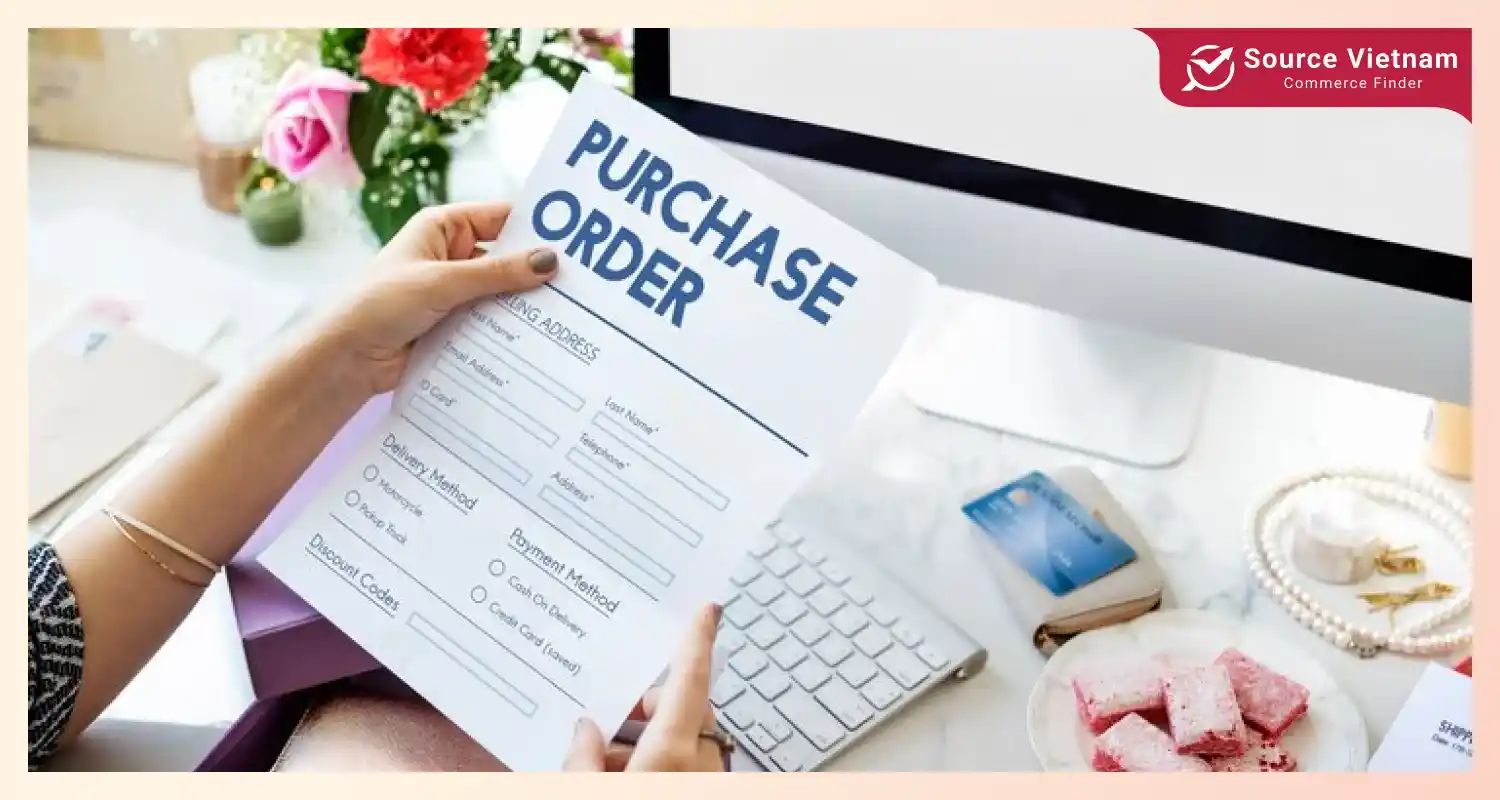
In addition, businesses should not forget to consider other factors that have a great influence, such as seasonal customer demand, new product launch periods, or promotional occasions. Careful planning like this will help your business avoid shortages during periods of high demand while avoiding wasting capital on inventory when falling into the season of low consumer demand.
Where to buy wholesale fabric online?
Finding reliable platforms and sources for wholesale fabric is essential for businesses looking to secure quality materials at competitive prices. Here are some reputable sources to explore for high-quality wholesale fabrics.
SourceVietnam.com
SourceVietnam.com is one of the platforms where to buy fabric wholesale online, offering a wide portfolio of good-quality, reasonably priced fabrics. The website sells its products to businesses of every scale, from small boutiques to large-scale manufacturing units, offering them various industry choices.
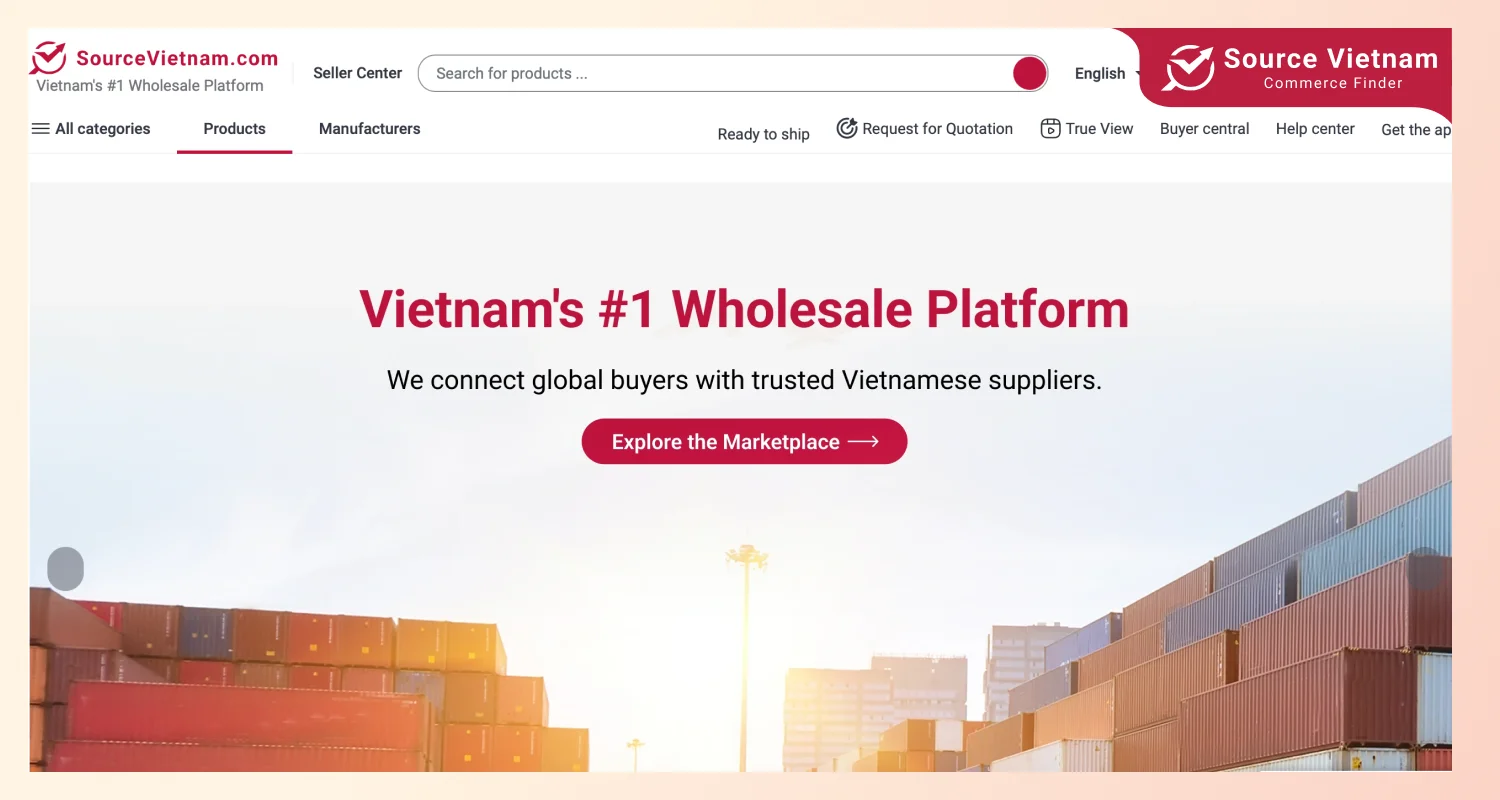
With customization options for fabrics, finding unique materials that fit a brand’s design and quality standards becomes easy on SourceVietnam.com. By directly linking buyers to reliable Vietnamese manufacturers, the website SourceVietnam.com ensures competitive pricing and dependable sourcing suitable for businesses searching for quality and value in bulk fabric purchases.
Mood Fabrics
Mood Fabrics offers quality fabrics and free sewing resources online.
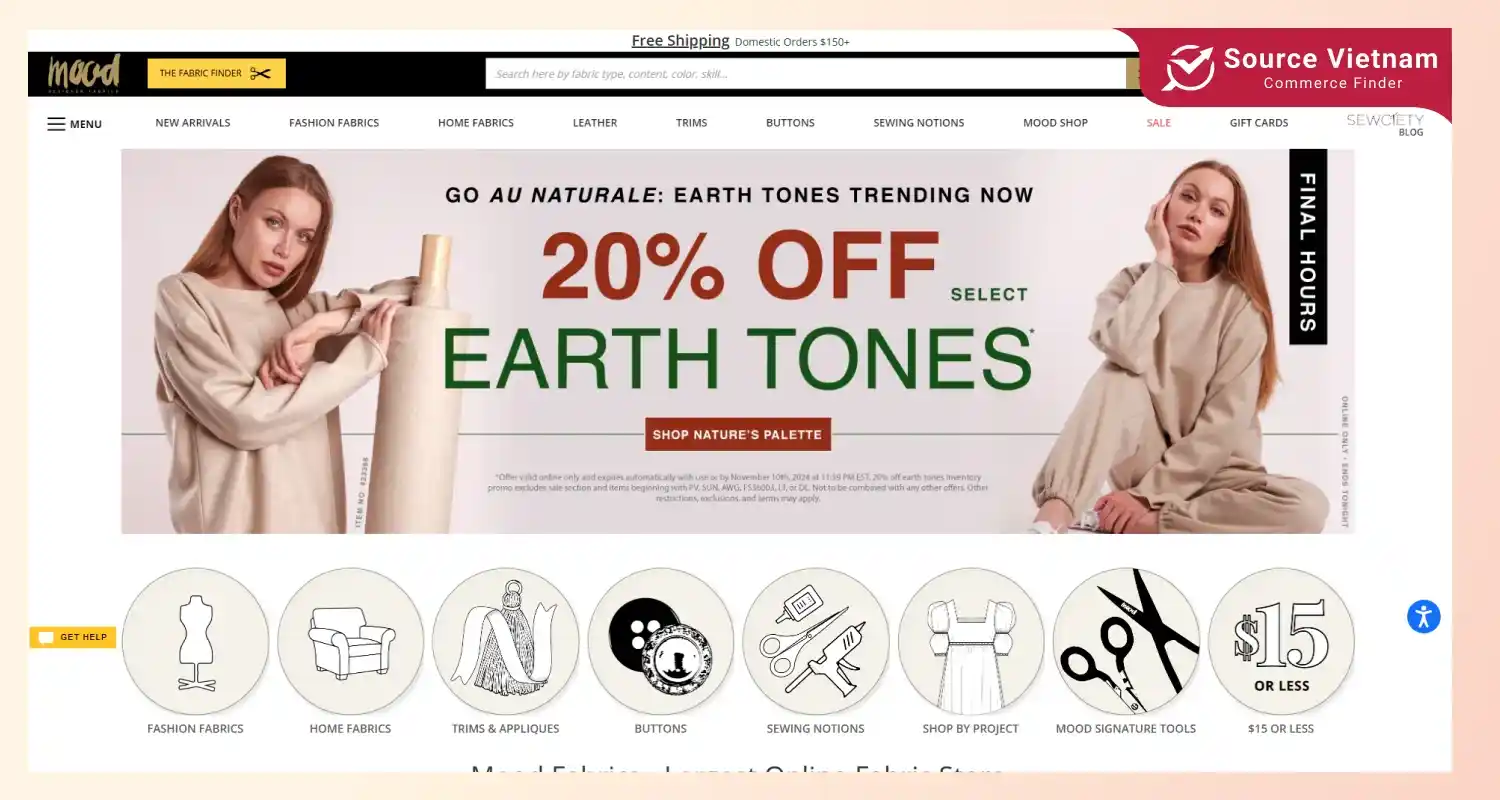
Mood Fabrics is an online fabric store leading the market in carrying a diverse range of high-quality materials for designers, home sewers, and even do-it-yourselfers. The highlight of Mood Fabrics comes from the commitment to quality and customer satisfaction, seeing it through by availing free sewing patterns and tutorials through their blog, Mood Sewciety, which helps beginning and advanced specialists bring their inspiration to life.
Joann Fabrics
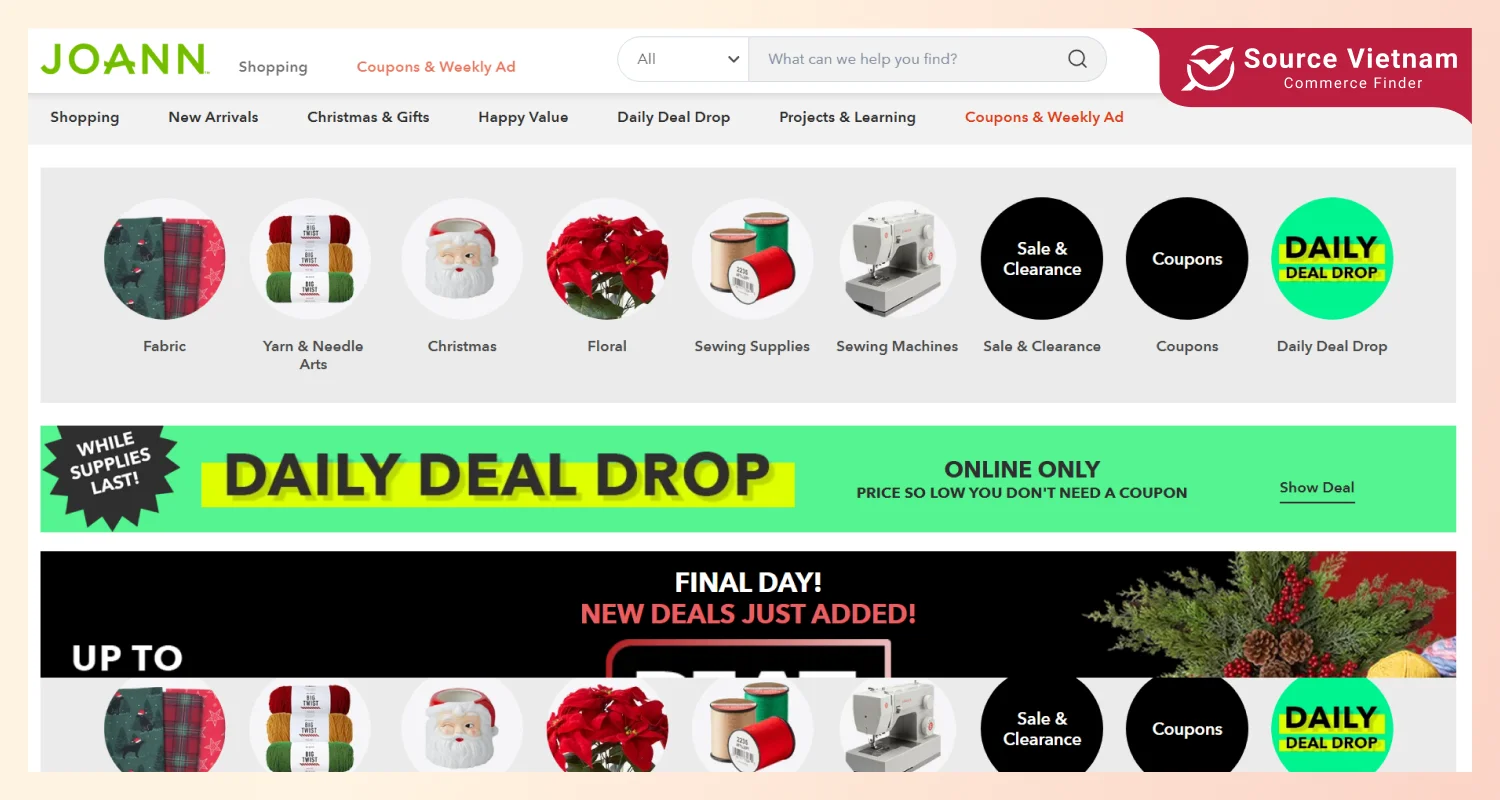
Joann Fabrics offers wholesale fabric distributor rates to companies that meet specific order requirements despite their primary focus on retail. Joann Fabrics is a practical choice for smaller businesses wishing to test materials or make early purchases before committing to bigger amounts because of their wide choices and bulk pricing.
Fabric trade shows and wholesale events
One practical way to look at fabric alternatives, meet suppliers, and keep up with industry trends is to attend trade events like Texworld USA and Premiere Vision. When attending fabric trade shows and wholesale events, businesses have the opportunity to extend networking and build relationships with respectable fabric manufacturers and wholesalers.
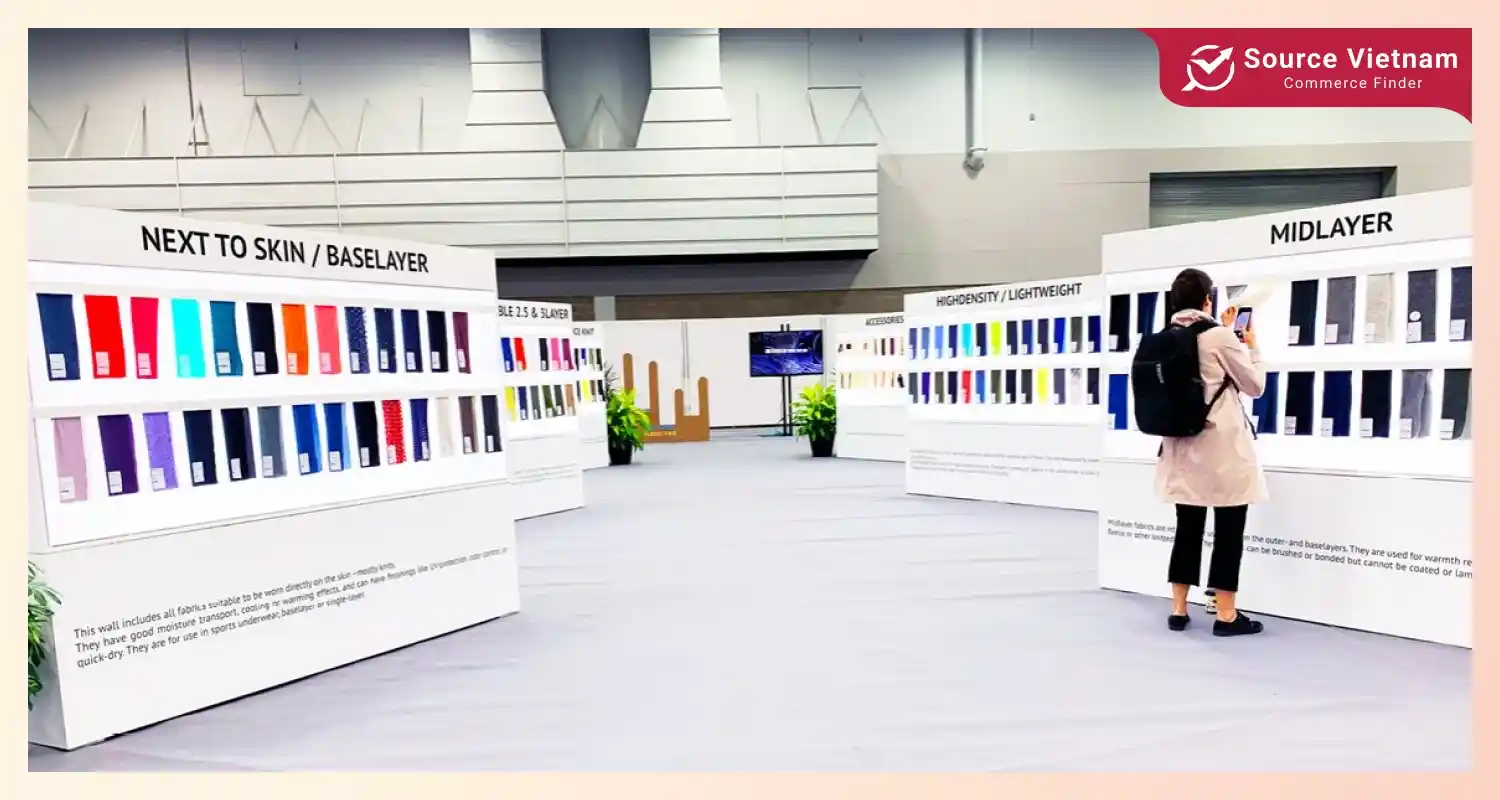
Local wholesale fabric suppliers
Local or regional suppliers offer advantages like faster delivery times and reduced shipping costs. Building a relationship with nearby suppliers can simplify reordering and provide quick access to samples for quality checks. Local partnerships should also offer better flexibility in MOQ requirements, helping you balance inventory needs.
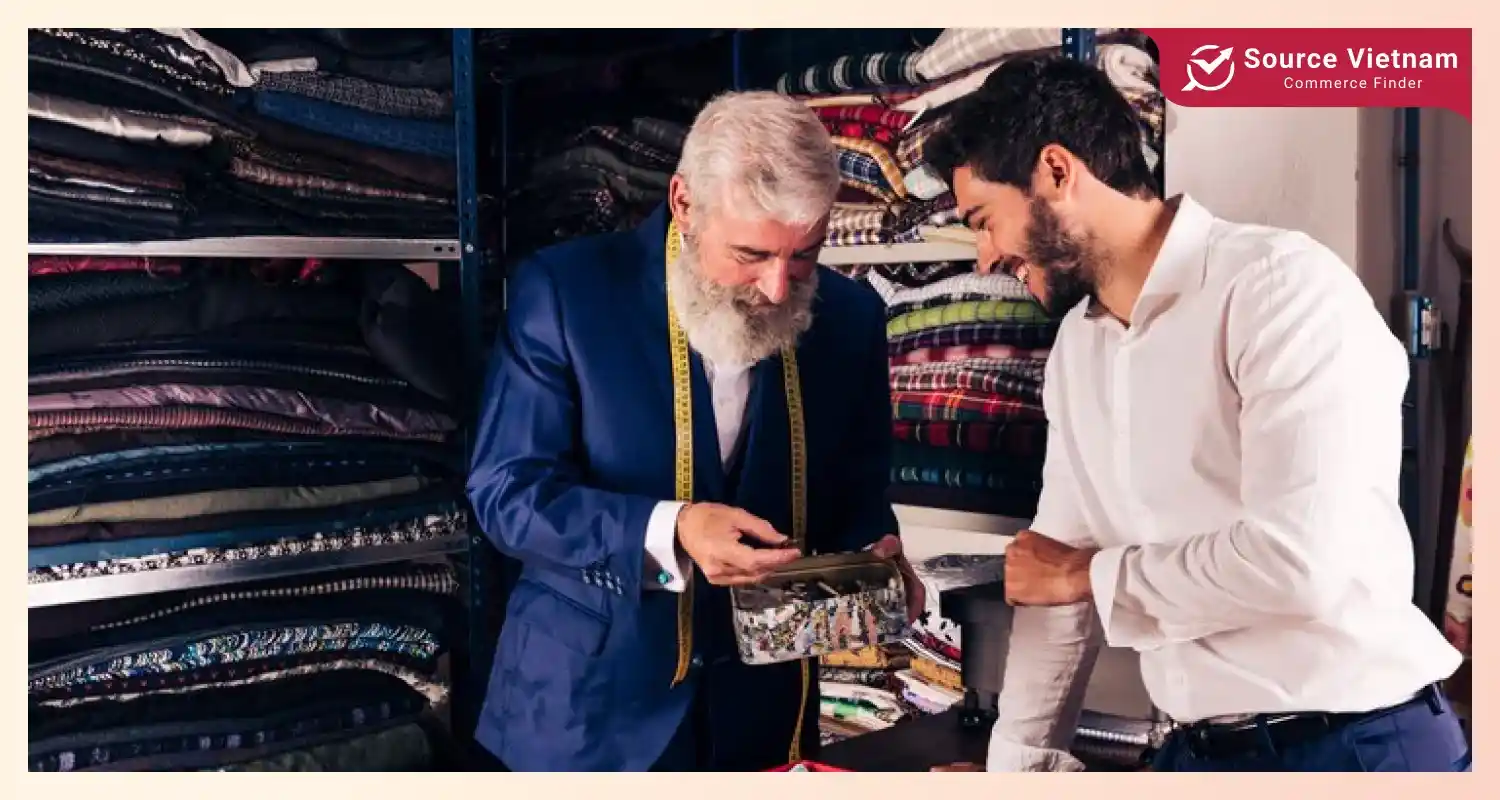
Why are fabric quality and certifications important for bulk purchases?
Ensuring fabric quality for bulk purchases is essential to maintain product consistency and customer satisfaction. High-quality fabric enhances the durability and appeal of the final product, reducing the risk of returns or complaints. Let’s explore why fabric quality and certifications are essential.
How to test fabric quality?
Businesses should test fabric samples for texture, colorfastness, and durability to guarantee that the fabric satisfies your requirements. Also, the company should perform other durability tests to determine how well a cloth can tolerate deterioration. For example, washing samples to assess how the material holds up over time and checking for potential issues like shrinkage, fading, or warping.
The interest in certified and sustainable fabrics
A report by The Business of Fashion states that the global sustainable fashion market, reflecting consumers’ growing preference for environmentally friendly fabrics, will see a 22.9% compound annual growth rate from 2023 to 2030.
Various certifications have safety and environmental requirements accredited by GOTS – Global Organic Textile Standard and OEKO-TEX, amongst others. Businesses have found potential suppliers have these credentials as they want to maintain brand loyalty of environmentally aware customers.
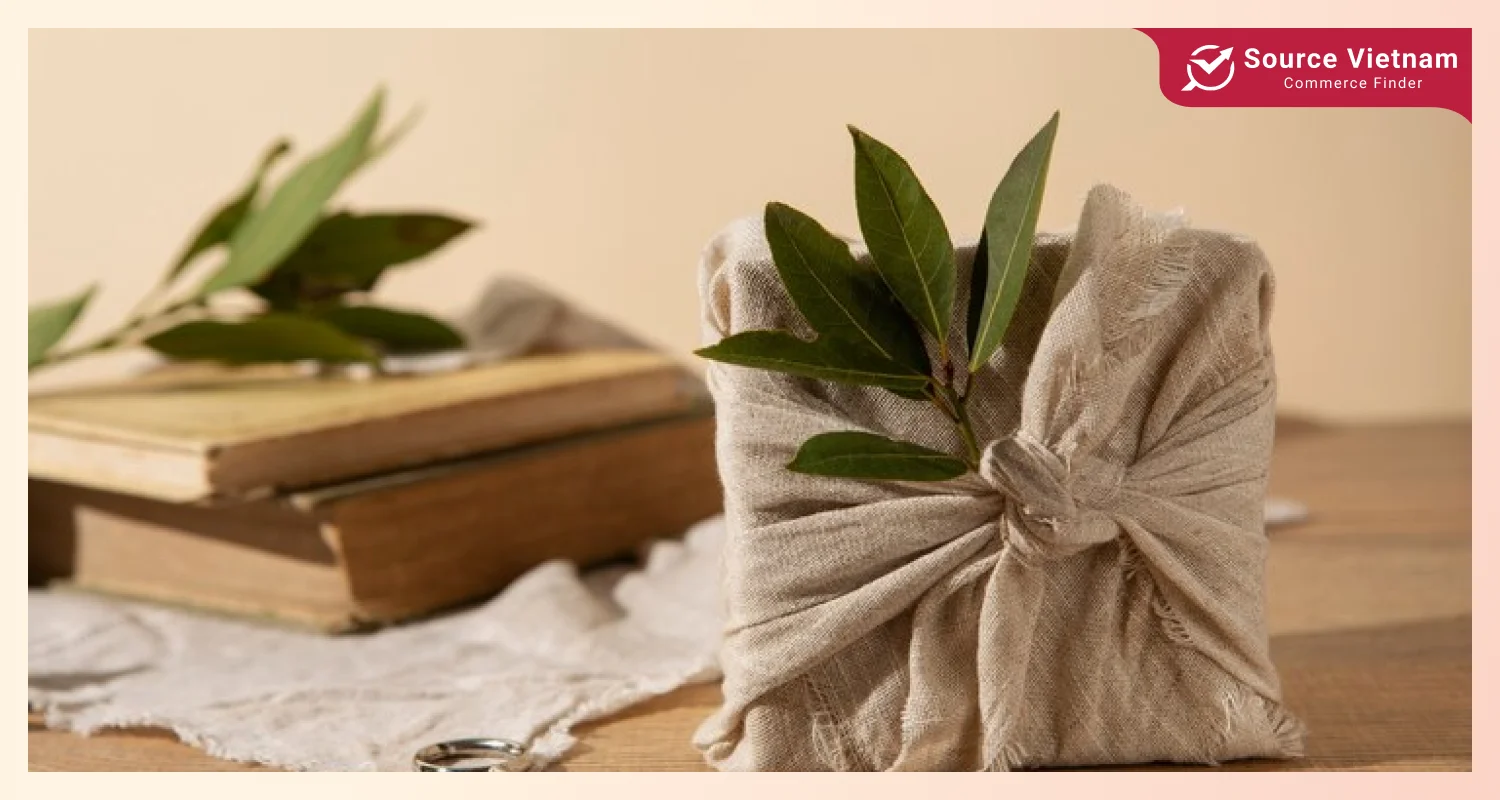
Logistics and shipping considerations
Managing shipping and delivery of bulk fabric is crucial for maintaining a smooth production process and meeting customer demand on time. Efficient logistics planning helps businesses avoid costly delays and ensures fabric arrives in optimal condition, ready for immediate use.
Shipping costs and timelines
These shipment and delivery schedule costs depend on many factors, such as order volume, shipping method, and destination. While it is relatively cheaper to send big orders by sea freight, it is rather slow compared to air freight, which is quicker but more expensive. Businesses should ensure these expenses and delivery dates work with their production schedule by calculating them carefully.
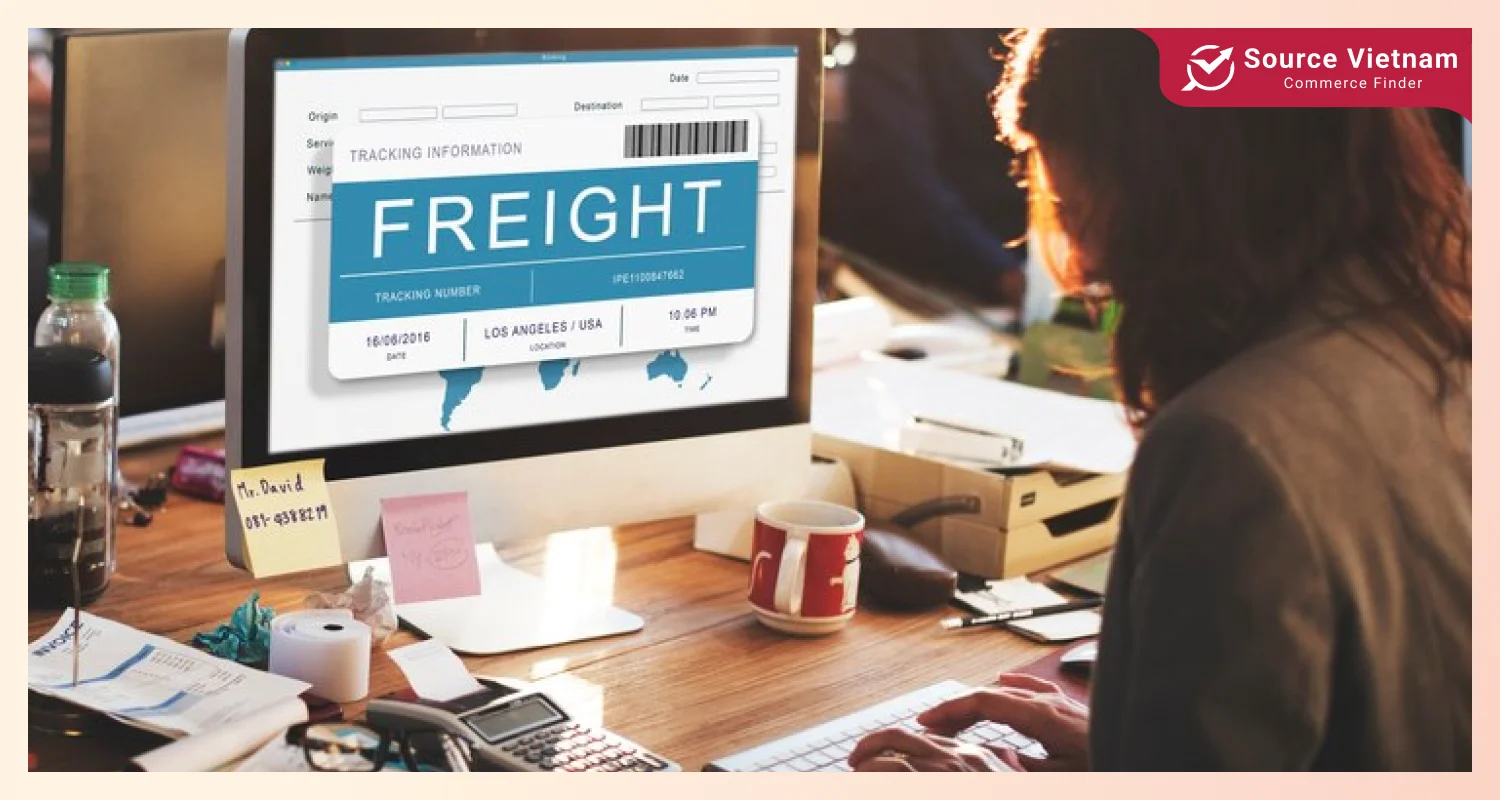
Importing fabric from international suppliers
When a business has to import fabric, one must deal with taxes, customs charges, and local laws. If your company wants to prevent delays and get help with import procedures, the company should collaborate with a customs broker. By being proactive, you may minimize shipment delays and expensive fines while streamlining your import/export of textiles process.
How to avoid issues when buying fabric wholesale?
Avoiding common mistakes in how to buy fabric wholesale is crucial for maintaining cost efficiency and product quality. By being aware of potential pitfalls, businesses can make smarter buying decisions that support smooth production and long-term success.
Skipping supplier research
Failing to research suppliers can lead to unreliable deliveries or subpar fabric quality. Always check a supplier’s credentials, request samples, and read reviews to ensure quality and reliability.
Ordering excess fabric
While buying in bulk can reduce costs, ordering many fabrics can lead to high storage costs and waste. Order based on realistic projections to avoid tying up funds in unused materials.
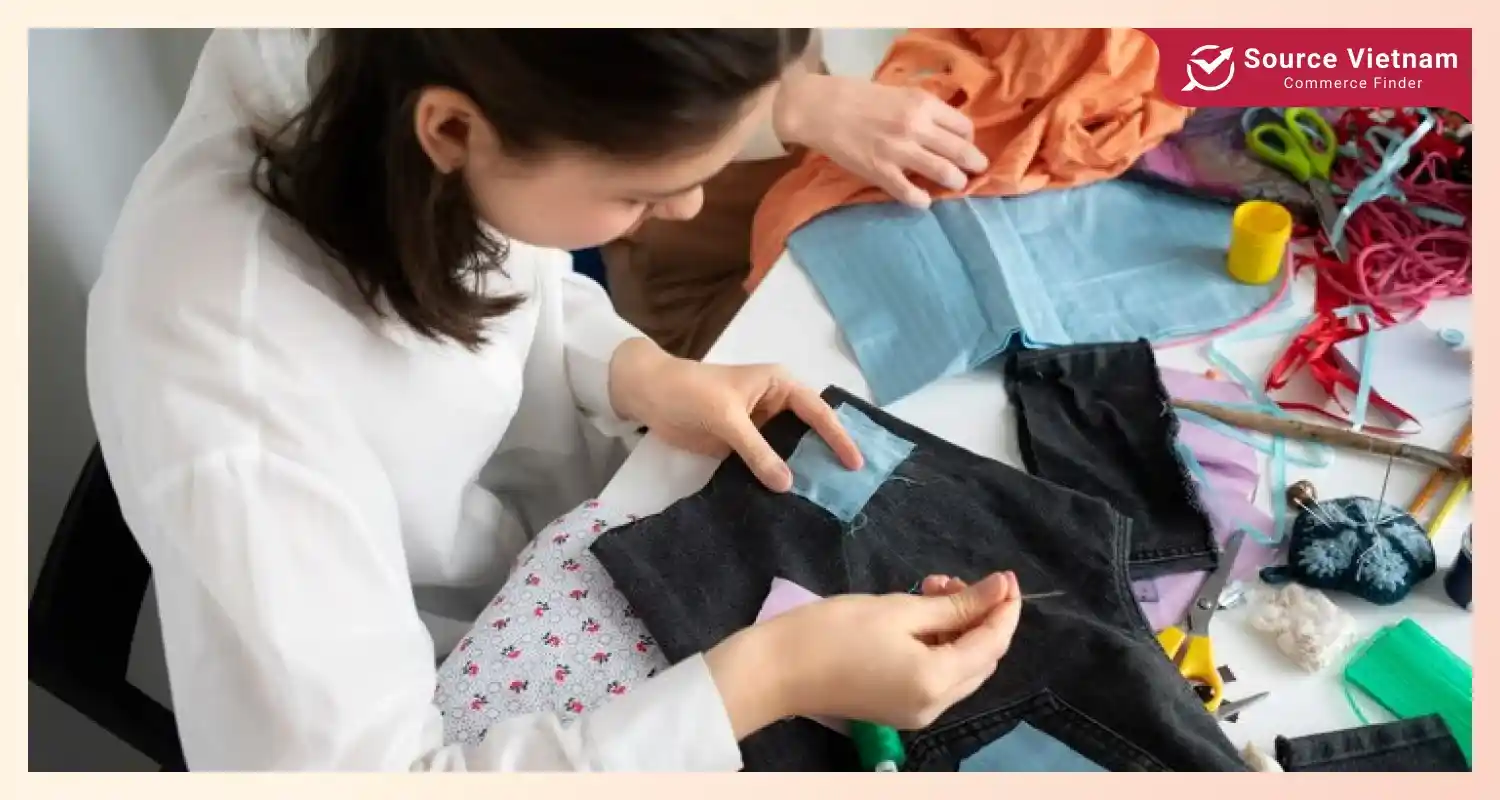
Conclusion
Understanding how to buy fabric wholesale is essential for any business looking to optimize costs, ensure consistent quality, and streamline its production process. SourceVietnam.com is one of the trusted platforms for finding reliable fabric wholesale for businesses. Following these strategies, businesses confidently take the route of wholesale fabric options and make proper decisions.
Take the next step in growing your business by purchasing fabric in bulk, and open the door to better pricing, diverse material choices, and greater control over your product offerings.
FAQ
What is the minimum order quantity for wholesale fabric purchases?
MOQ – minimum order quantity, a minimum amount which a supplier requires for each transaction. In this case, the provider needs some assurance that they will be compensated for production transportation and storage costs. MOQ depends upon the policy of every different supplier.
How can I ensure fabric quality when buying in bulk?
When purchasing fabric in large quantities, begin by asking for samples to verify color, texture, and durability. Perform simple tests like stretching and washing to verify the fabric’s toughness and ensure it endures normal use. Finally, work with reputable suppliers with positive reviews and industry certifications, which help guarantee consistent quality in larger orders.
Do I need a license to buy fabric wholesale?
Most states or regions require you to obtain a reseller’s permit or wholesale license to buy fabric at wholesale prices. A resale permit allows the business to purchase goods tax-free that will be resold. However, some suppliers may sell wholesale fabric without requiring such documentation, especially for smaller quantities. It’s essential to check local regulations and consult with potential suppliers to understand how to buy fabric wholesale without a license.
What are the best online platforms for buying fabric in bulk?
For businesses seeking bulk fabric, there are many trusted online platforms such as SourceVietnam.com, Mood Fabrics, and Joann Fabrics to connect buyers directly with manufacturers. These platforms offer a diverse range of high quality fabrics at competitive prices and are tailored to meet industry-specific needs. Moreover, local wholesale fabric markets or fabric trade shows also help businesses find contacts for direct suppliers for efficient sourcing.
Is fabric wholesale direct legit?
Fabric Wholesale Direct is an online retailer offering a wide range of fabrics at wholesale prices. Customer experiences with the company vary:
- Positive Feedback: Some customers commend the company for its extensive fabric selection, competitive pricing, and prompt shipping. For instance, a reviewer on Sewing Machine Fun mentioned making multiple purchases since 2020 and expressed satisfaction with the quality and affordability of the fabrics.
- Negative Feedback: Other customers have reported product quality and customer service issues. Sitejabber features reviews where customers have expressed dissatisfaction, leading to an average rating of 2.7 out of 5 stars.
In summary, while Fabric Wholesale Direct is a legitimate company, potential customers should be aware of the mixed reviews and consider them when purchasing.




